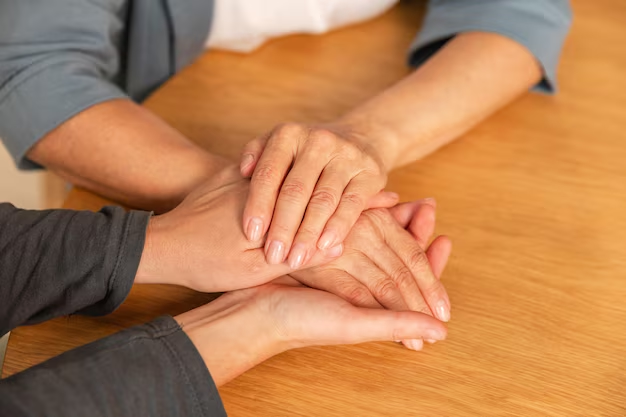Your Guide to How To Know If You Have Parkinson's
What You Get:
Free Guide
Free, helpful information about Parkinsons FAQ and related How To Know If You Have Parkinson's topics.
Helpful Information
Get clear and easy-to-understand details about How To Know If You Have Parkinson's topics and resources.
Personalized Offers
Answer a few optional questions to receive offers or information related to Parkinsons FAQ. The survey is optional and not required to access your free guide.
Recognizing the Signs of Parkinson’s: What You Should Know
Living life with vigor and vitality is something we all aspire to. Yet, when certain changes in our bodies emerge, it's crucial to recognize them and seek appropriate guidance. If you suspect that you or a loved one might be experiencing symptoms of Parkinson’s disease, understanding these early signs is essential for timely intervention and better quality of life.
Key Symptoms to Watch For
Parkinson's disease is a progressive neurological disorder that primarily affects movement. Tremors, particularly in the hands, arms, legs, or face, are among the most well-known symptoms. These tremors often occur at rest and might diminish with purposeful movement. While not everyone with Parkinson's experiences tremors, noticing any consistent or unusual shaking is noteworthy.
Another pivotal sign is bradykinesia, or slowness of movement. Tasks that used to be simple, like getting dressed or eating, may take considerably longer. This sluggishness can make your daily routine cumbersome and requires careful monitoring.
Muscle stiffness can also be an indicator. If you feel tightness in your limbs or torso that doesn’t seem to loosen even with activity, it might be time to consult with a healthcare professional. This rigidity can contribute to an altered gait, making walking difficult and increasing the risk of falls.
Diagnosing Parkinson’s Disease
While symptoms offer the first clues, a definitive Parkinson’s diagnosis involves a thorough neurological examination. Healthcare professionals will assess your reflexes, muscle strength, coordination, and balance. They may also conduct imaging tests, like a DAT scan, to rule out other conditions.
Early diagnosis is critical. If you notice any of the symptoms mentioned, arranging a consultation with a neurologist is an excellent first step. With professional help, determining the presence of Parkinson’s and discussing potential treatment options can chart the path forward.
Navigating Financial and Supportive Resources
A Parkinson’s diagnosis can bring various concerns to the forefront, including financial strains. Fortunately, there are resources available to ease this burden.
Government assistance programs can be invaluable. For instance, people with Parkinson’s may qualify for disability benefits, which can help cover medical and everyday living costs. Similarly, the Medicare and Medicaid programs offer substantial support in managing healthcare expenses.
If Parkinson’s has impacted your ability to work, exploring debt relief options might also be beneficial. These options can include restructuring existing debts to make payments more manageable, offering peace of mind and financial stability.
Considering potential long-term care costs is another essential aspect of planning. Financial planners or advisors specializing in medical conditions can help outline the best strategies, ensuring access to quality care without sacrificing financial security.
Additionally, a variety of educational grants and scholarships target individuals looking to change careers or upgrade skills due to the limitations placed by medical conditions. These initiatives can empower you or your loved one to continue contributing meaningfully to society while managing symptoms effectively.
In summary, recognizing the early signs of Parkinson’s can significantly influence the trajectory of the disease and the person’s quality of life. Timely diagnosis coupled with an understanding of available financial and educational resources can lead to peace of mind and a robust support system.
Financial Assistance & Supportive Resources Guide:
- 🏛 Disability Benefits: Explore eligibility for government disability programs to support living and medical expenses.
- 🏥 Medicare and Medicaid: Look into healthcare programs to reduce medical costs effectively.
- 🏦 Debt Relief Options: Consult financial advisors for strategies to manage existing debts impacted by work limitations.
- 📚 Educational Grants: Seek scholarships for career retraining or skill enhancement to maintain employment adaptability.
- 🧑💼 Financial Planning: Engage with professionals to create a long-term care financial strategy.
- 🌐 Community Support Groups: Connect with organizations offering emotional and practical support for individuals with Parkinson’s.
Embracing these resources not only ensures a proactive approach to managing Parkinson’s but also fosters resilience in living a fulfilled life.
What You Get:
Free Parkinsons FAQ Guide
Free, helpful information about How To Know If You Have Parkinson's and related resources.

Helpful Information
Get clear, easy-to-understand details about How To Know If You Have Parkinson's topics.

Optional Personalized Offers
Answer a few optional questions to see offers or information related to Parkinsons FAQ. Participation is not required to get your free guide.


Discover More
- Are There Environmental Causes Of Parkinsons
- Can Alcohol Cause Parkinson's
- Can Concussions Cause Parkinson's
- Can Concussions Cause Parkinson's Disease
- Can Dogs Get Parkinson's Disease
- Can Dogs Get Parkinsons
- Can Dogs Have Parkinson's
- Can Dogs Have Parkinson's Disease
- Can Females Get Parkinson Disease
- Can Head Trauma Cause Parkinson's
